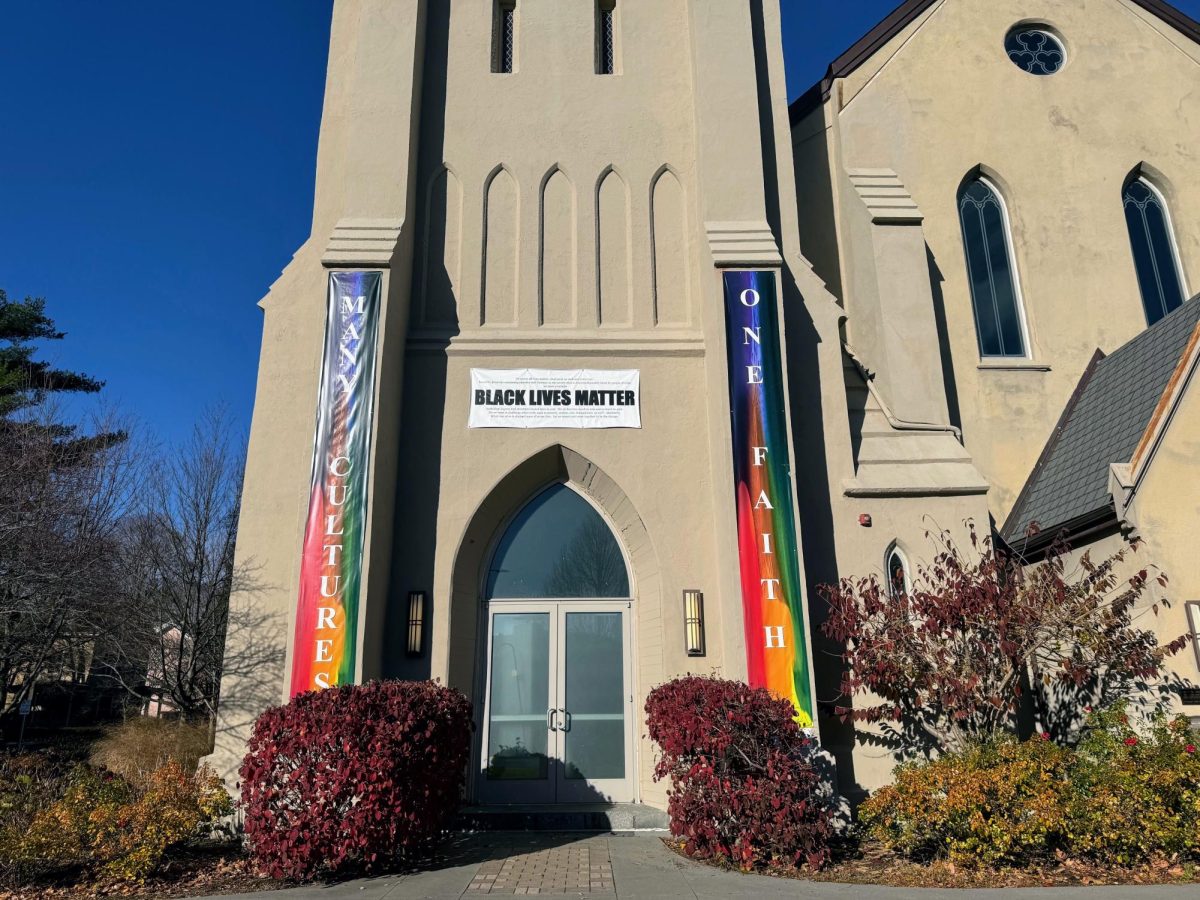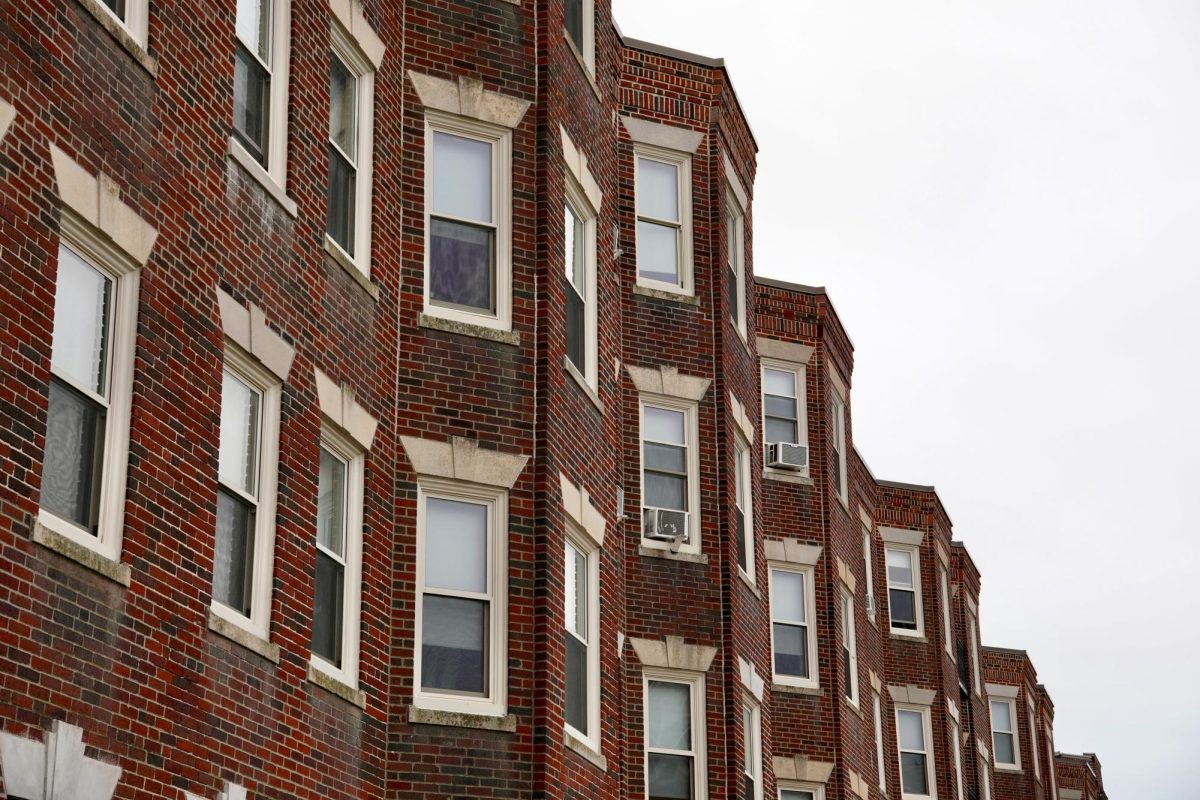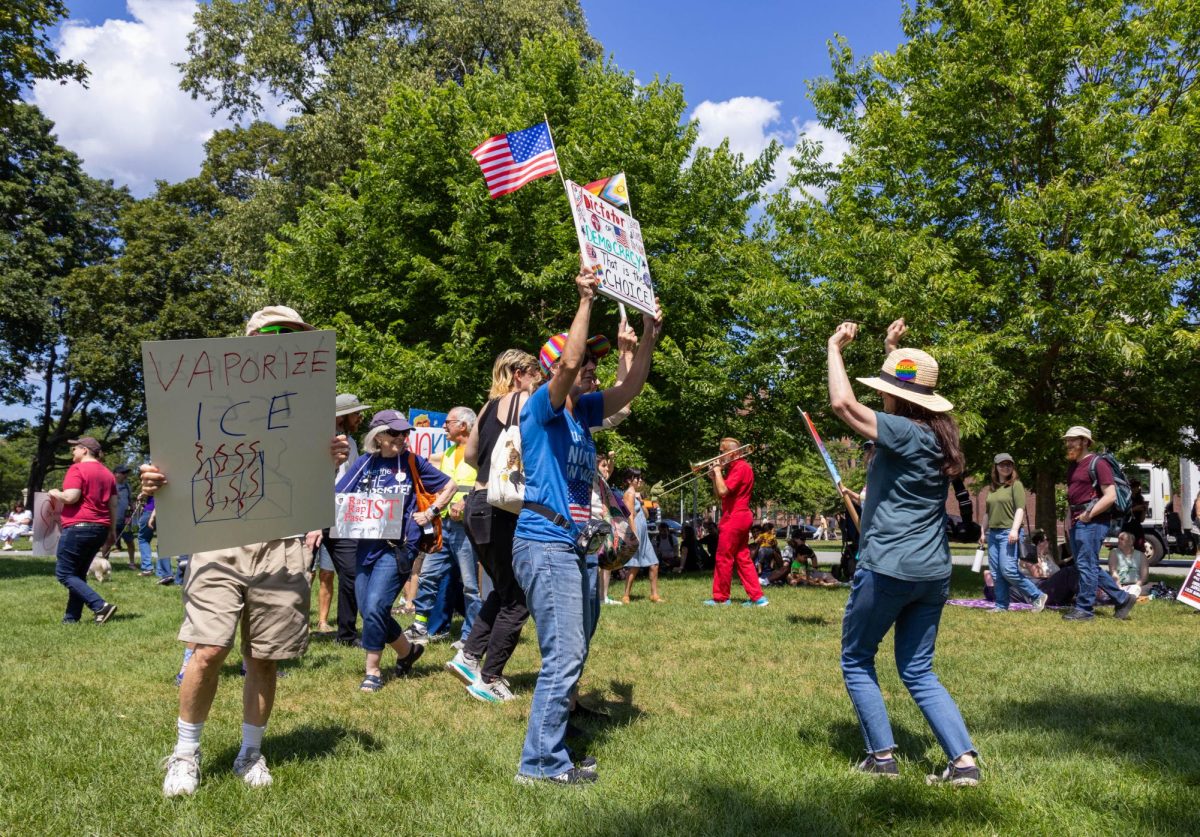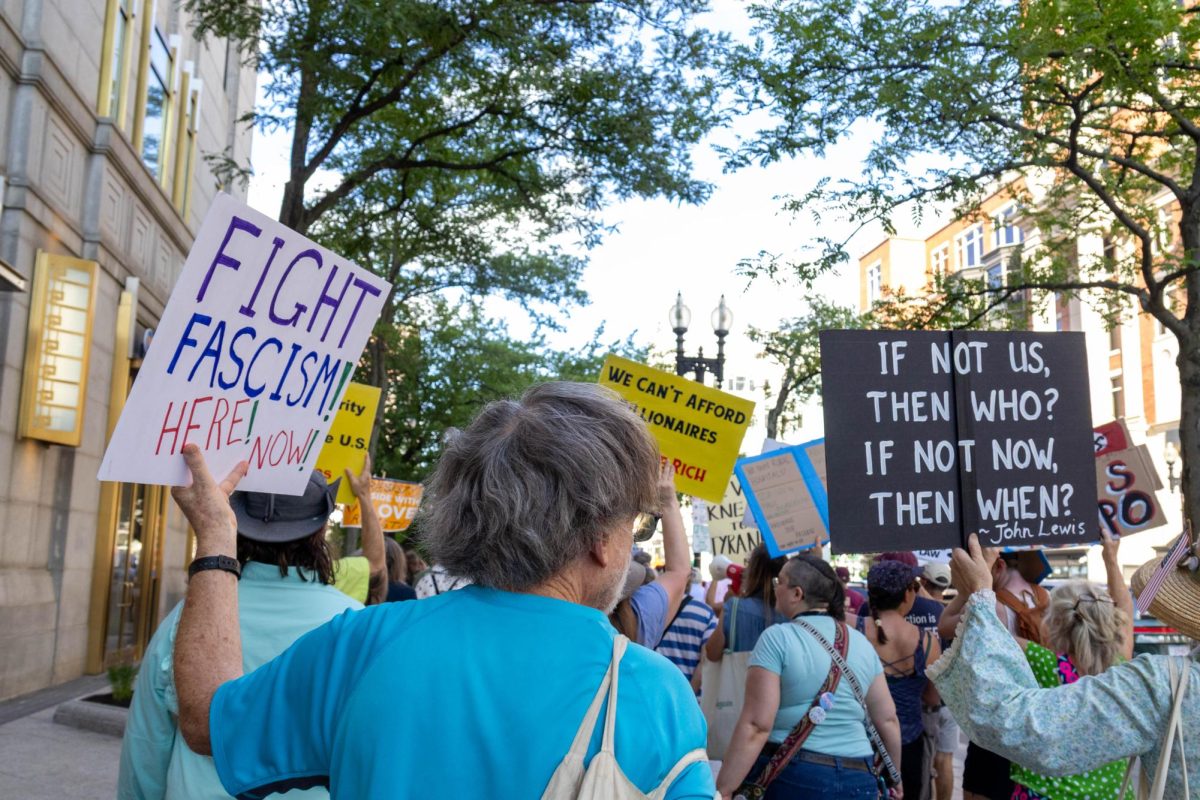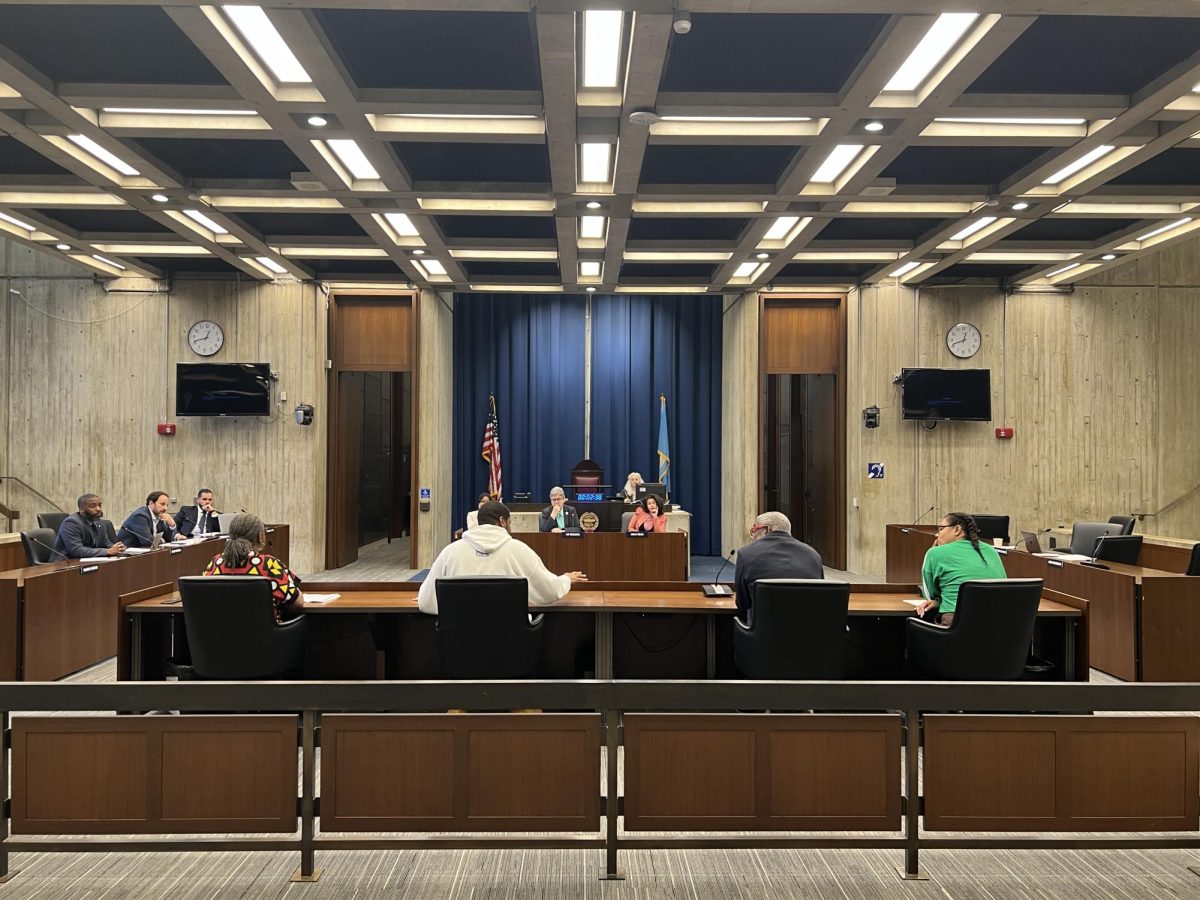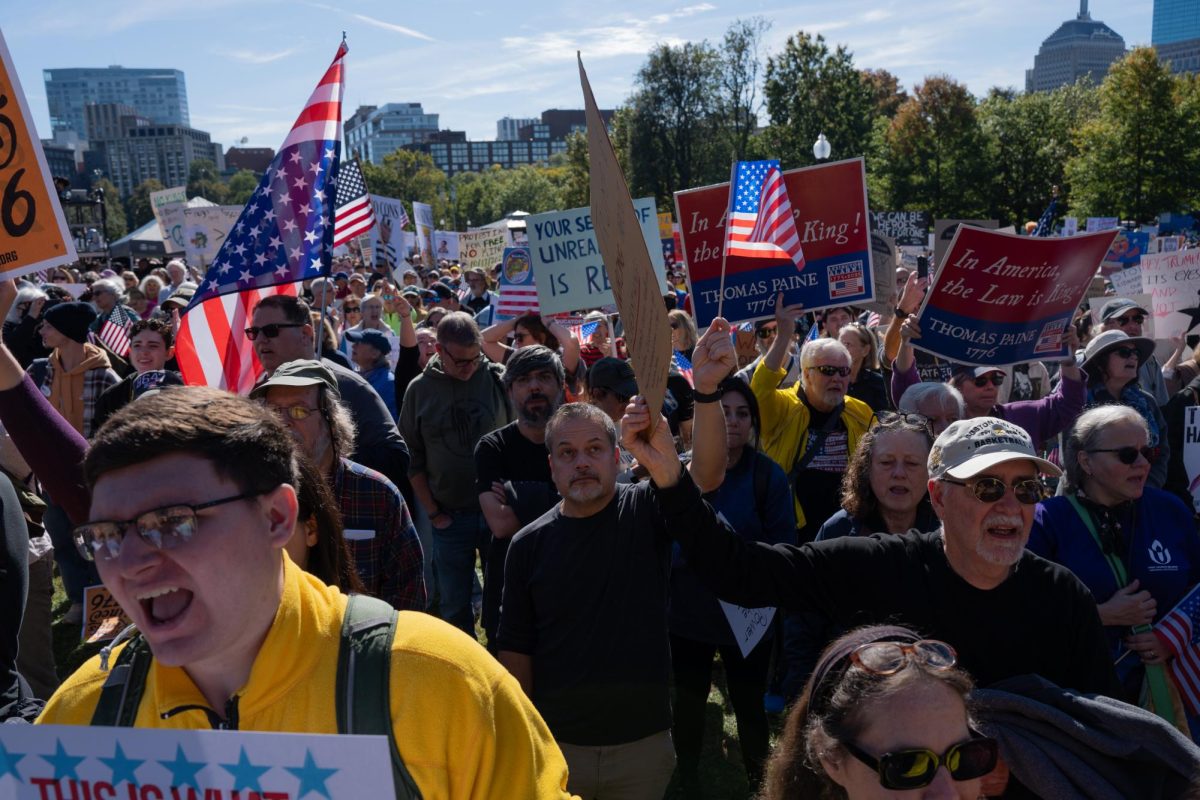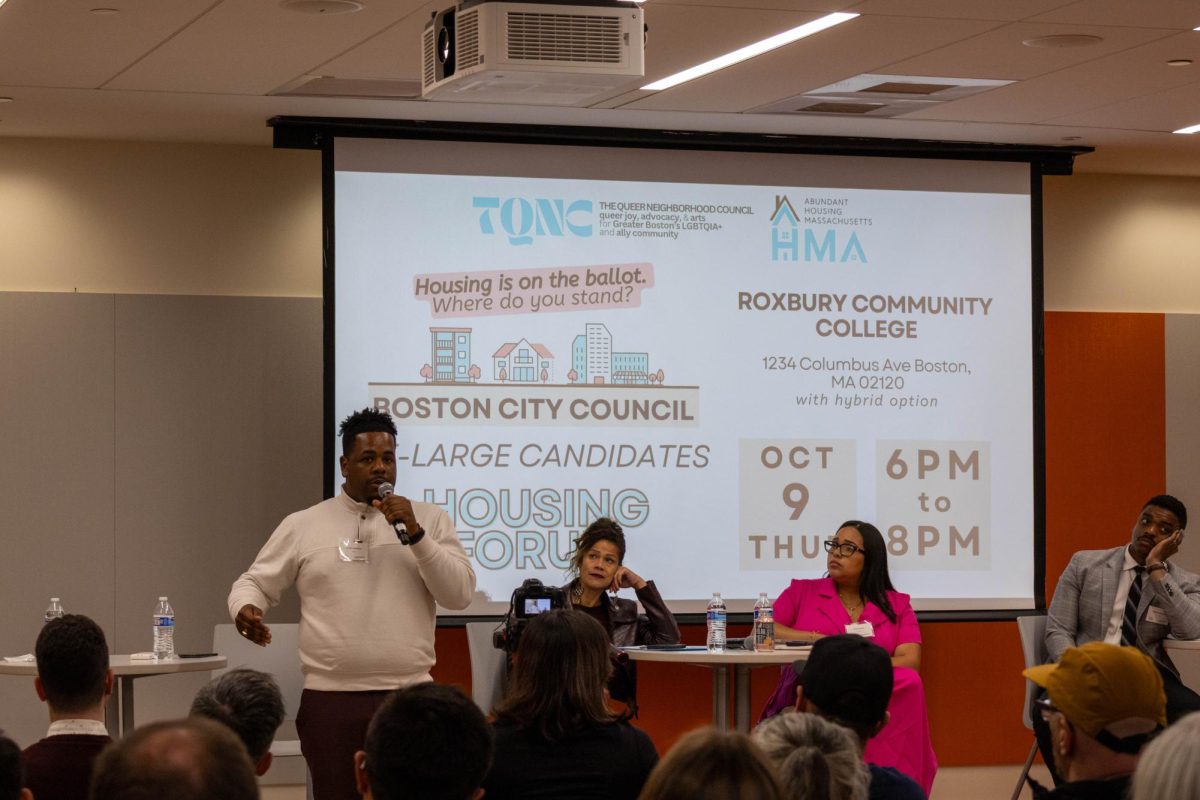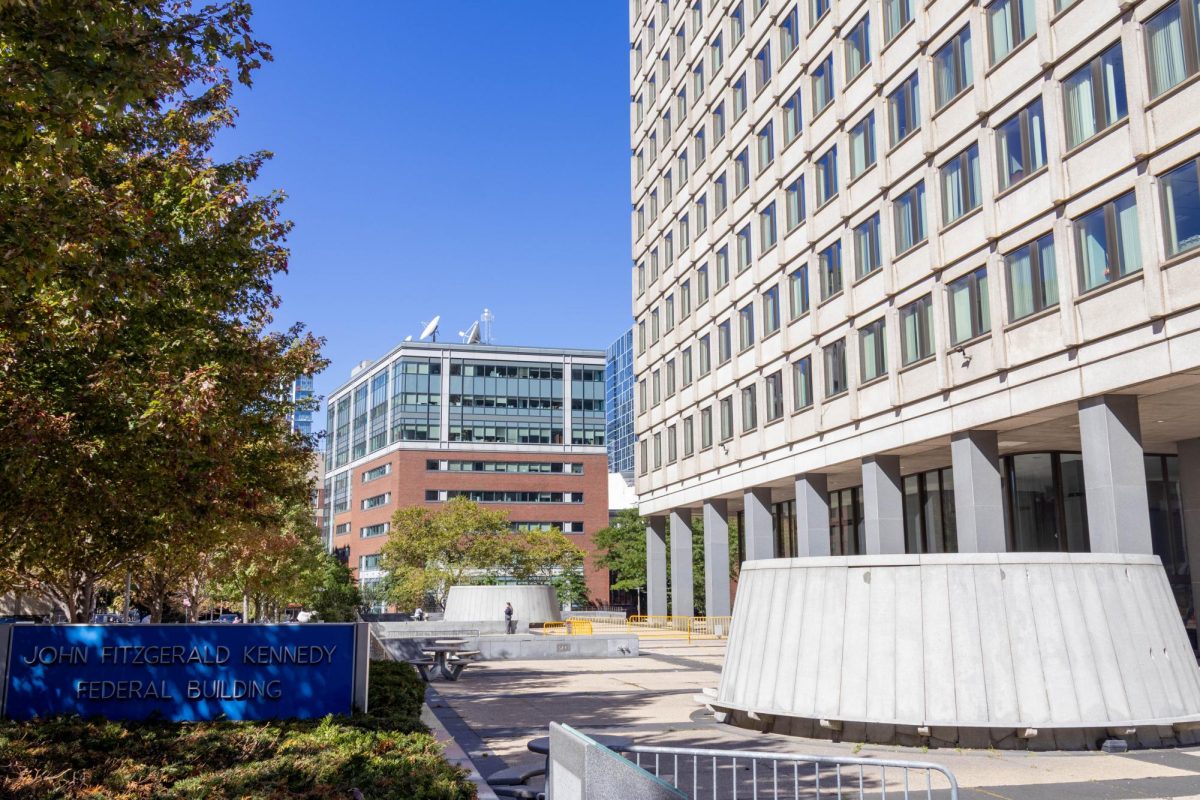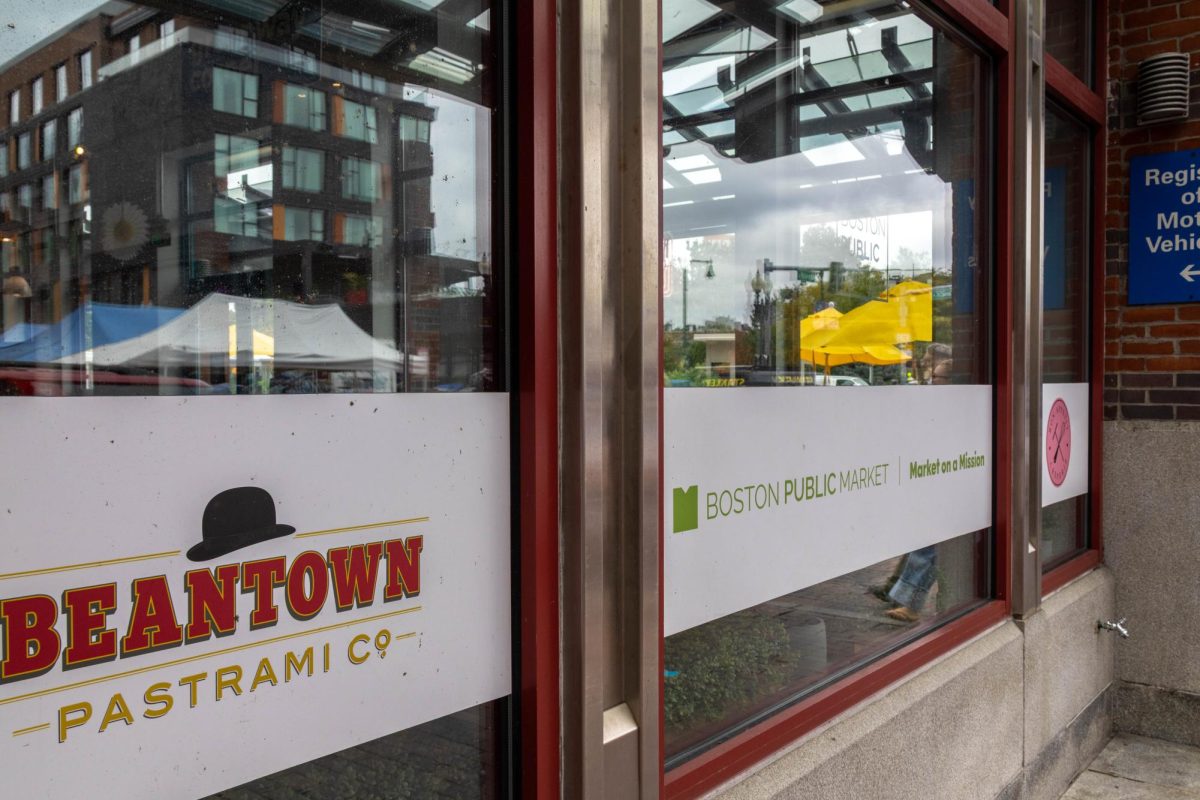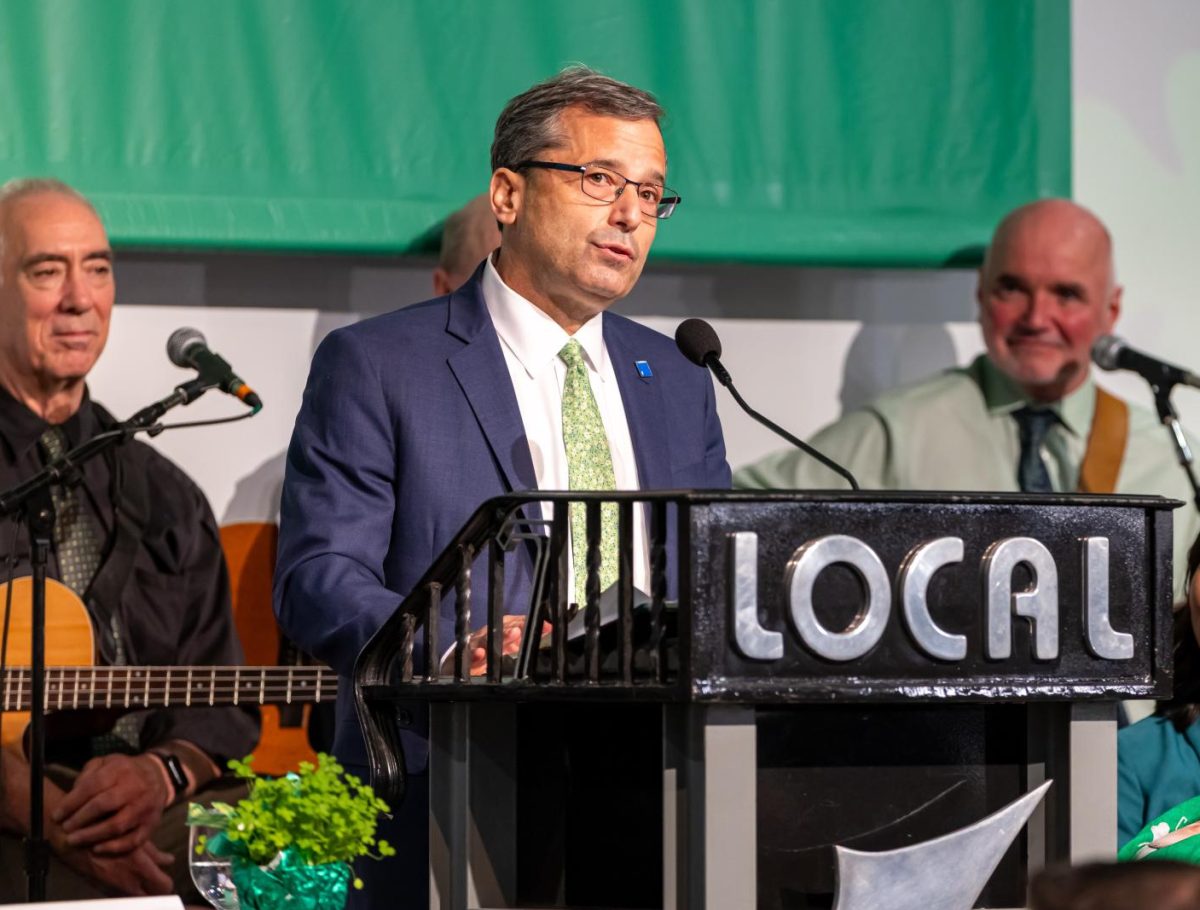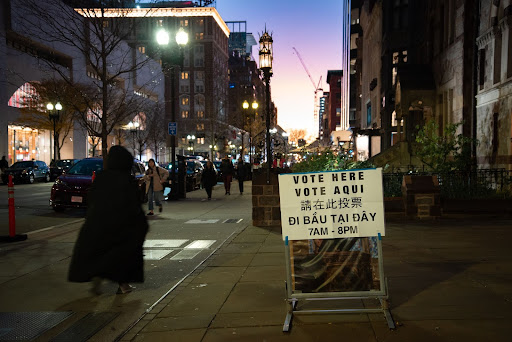On Jan. 21, the day following the inauguration of President Donald Trump, Bishop Mariann Edgar Budde delivered a powerful speech in front of crowds in Washington. Addressing Trump and Vice President JD Vance directly, Budde urged them to show mercy to immigrants and queer and transgender people within the United States.
Like Budde, progressive clergy in Boston are responding with concern for vulnerable populations in their communuties and beyond.
The Scope sat down with three Boston-area clergy to understand their reactions to the influx of executive orders, how they’ve adapted their advocacy and pastoral care and their plans moving forward.
- Rev. Elizabeth Nguyen, program director at Community Justice Exchange, migrant justice organizer and Universalist community minister at First Parish in Malden.
- Rabbi Leora Abelson of Nehar Shalom Community Synagogue in Jamaica Plain, an independent synagogue founded in 2005 that prioritizes anti-oppression values.
- Rev. Darrell Hamilton, executive pastor at First Baptist Church in Jamaica Plain, a centuries-old church that has been at the forefront of progress and racial justice in Boston and beyond.
This Q&A combines responses from interviews in Nov. of 2024, when Trump was elected, and from conversations this past week, post-inauguration. The responses have been edited for length and clarity.
Q: Could you introduce your congregation to us?
Nguyen: I’m affiliated with First Parish in Malden, a historic Unitarian Universalist congregation with a lot of history to reckon with, particularly in terms of slavery and colonization. It’s a community that has shared values around nurturing children, justice and liberation for all people, and is also actively supporting the immigrant community here in Eastern Massachusetts.
Abelson: This is a very politically engaged congregation. People in this community really care about how we as humans live together, not only in their own families or immediate circles but also wider communities, such as the neighborhood of Jamaica Plain and the wider city of Boston, [and take] seriously what it means to be … a Jewish person in a world with a global Jewish community. Members of the community are also directly engaged politically, as organizers, activists, educators and working in the public health sector.
Hamilton: First Baptist Church in Jamaica Plain has been around for 180 years, and its history has always been one that has aspired to be on the forefront of progress and racial justice. We are aligned with the Alliance of Baptists, a network of Baptist churches that are working towards being open, welcoming and affirming of LGBTQ+ congregants. Our motto is a church of many cultures in one faith, so we aspire to live into that in our services, programs and how we show up in the public square.
Q: How are you and your community feeling about the events following the inauguration?
Nguyen: Some are overwhelmed, others afraid, angry, numb etc … Some are focusing on their own families while others are focused on everything that’s in the news, and a lot of the time we’re holding five of these emotions all at once. I’ve been calling on folks to protect each other and impacted individuals. Even if they’re not in your particular faith community, they’re in your wider community, and now is a moment to look to those who have been in these fights for a long time and learn what our role is to support and protect our communities.
Abelson: I’m sad and scared and very worried for many people whose lives are immediately impacted in really terrifying ways. I’m also sad for all of the systems that people have worked so hard to create that are being undermined so quickly and just sad for the cruelty that has characterized the first few days of this administration. I think people, while they knew to some extent what to expect, have been surprised by just how vicious, quick and far reaching the administration’s actions have been.
Hamilton: It’s certainly overwhelming. It feels really easy to get over saturated with information, so people are trying to regulate the amount of news they’re consuming. People are in many ways, I think, still lost for words and a little dumbfounded about how best to articulate what they’re feeling or thinking in the moment. And then people are also trying to control what they can control, focusing on family, friends and loved ones and putting a lot of focus and attention there.
Q: Did you do anything in particular this past week to cope with the inauguration?
Nguyen: I gathered with a number of immigration organizers in different ways and used some of the tools for my own spiritual tradition to make space for us. This is a time when people of faith and spirit also have knowledge about regulating our nervous system and knowledge about how to build a community, which we can share. I think it’s also important to say this is not a time to relinquish our power, although there’s a lot of reasons to be afraid.
Abelson: There was almost immediately a meeting of a cluster of houses of worship in the neighborhood who worked together previously in support of immigrants and immigrant rights. The meeting was just to get some information about what we know so far, and starting to think about how we can support immigrants in our communities, in Boston and nationally. I’ve also been reconnecting with people who are doing the work on the ground of making this community, whether it’s Boston or Massachusetts, safer and healthier. I’m also just trying to pace myself and connect and check in on people who I know are terrified, but also giving myself the time and space to grieve and be scared and outraged and to feel the fullness of what is a really big time.
Q: How are you responding to the rescission of the special protections memo which protected places of worship from U.S Immigration and Customs Enforcement (ICE)?
Nguyen: I really urge folks to understand the actual risks and what’s fear mongering or propaganda, as the narrative that the President wants is for people to be afraid and divided. I’m hearing from people concerned about the rescission of the special protections memo which protected places of worship from ICE. However, private space is always protected, and that may mean we’re going to create a space in our congregation that’s not open to the public so we know that space is a little bit more protected. We see this work on the ground at the moment with educators, faith leaders and leaders in the health community.
Hamilton: We’re sponsoring tonight a “Know your rights” training in response to ICE being present in Boston, and making sure that we’re able to host private events for people to come and learn some of the necessary things. Churches are no longer protected in the same way, so there is work to prepare, and information sharing about how to prepare and train ourselves about how it is that we are in space together, during the week and on Sunday mornings.
Q: What are your thoughts on faith leaders’ resisting in moments like this and standing up to power?
Nguyen: I think it is absolutely our role as leaders, and as stewards of our shared collective values and morality, to stand up to power. For me there’s no separation of politics and the pulpit. Politics shapes our everyday life and shapes who lives and dies in this country and the world. I think it is our role as religious leaders to name the conflict between faith and so much of what’s happening in American culture and politics right now, and to chart a path forward that’s different. Every single one of us can be pushing wherever we work, if we work for policies that protect people against ICE, protect queer and trans people and protect the values of diversity, equity and inclusion. I think that the bishop showed us that if we use the role that we’re given we can have an impact.
Abelson: I feel a responsibility for my particular tradition to advocate for a world that reflects the truth that all human beings are created in the divine image, and that means we don’t chose between us and them, we fight for everybody’s safety, dignity and freedom and we don’t let political leaders or anyone else tell us that we have to choose between our own safety and somebody else’s.
Hamilton: This is exactly what it means to be Christian, not even just that you’re asking for mercy but practicing mercy and compassion for the vulnerable. What I said on Sunday is that the message of the gospel is not about the common good for America or Americans but is the common good for all people. When you’re concerned about the common good it means you’re not concerned about a person’s legal status in order to treat them, you’re not politicizing or conditioning federal aid, you’re not weaponizing law enforcement that makes children afraid to go to school.
Q: What are your plans moving forward?
Nguyen: We are definitely just keeping forward. The majority of my focus right now is around supporting immigrants, and one of the unfortunate realities is that deportations have been at really high numbers anyway. We can see in the narrative that’s being crafted, very intentionally creating a story that the people who are impacted by ICE are criminals. It’s a really important moment to realize that this is a specific marketing that ICE is intentionally doing, and we know that those who end up criminalized in this country are people who are poor and people of color. Our role, especially as religious leaders, is to say every single person is a child of God and every single person should be protected from state violence.
Abelson: Our concrete plans are to keep doing what we’re doing. So much is still continuing to unfold, and we want to stay able to respond without being too reactive to the drama just created by the chaos that they’re selling. We want to be able respond and keep each other safe and resist in the ways we are called to, so it’s creating a balance on both ends.


